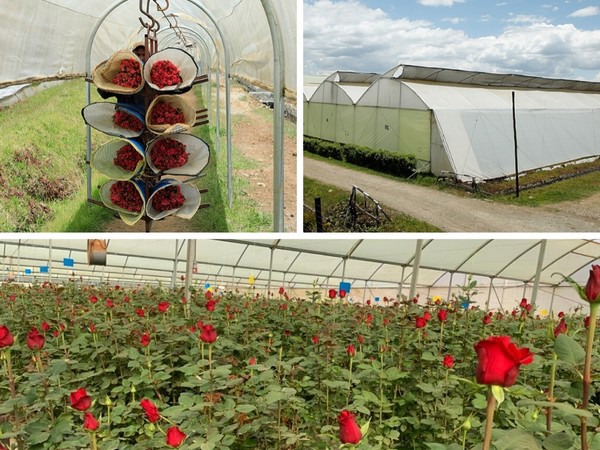The outbreak of the COVID-19 pandemic caused worldwide lockdowns and subsequent travel restrictions by national governments in most countries, that disrupted supply chains across the globe and seriously affected the floriculture industry in Kenya in many ways. The period from March through May has the peak holiday season for the flower growers that cover International Women’s Day, Easter, and Mother’s Day. Demand for flowers dropped as flower shops around the globe had shut, due to lockdown and cancellations of events & weddings. Unavailability of flights, lower demand, and negligible export of fresh cut flowers forced flower growers to destroy millions of stems at the farm which resulted in a huge loss for the growers. The farms have taken some serious actions to survive in this turbulence time. To control the cost farms have deducted the salaries, reduced the manpower, used minimum spray, and fertigation, put some plants and varieties on rest by cutting back to stop production of the flowers for a few weeks till the demand picks up.
By Shabista Khan

As many countries are lifting the lockdowns and easing the restrictions and demands for the flowers are picking up in some destinations, but challenges of the Kenyan floriculture industry do not seem to be at ease for the upcoming months.
Some of the measures taken by the farms to control the cost have affected the production cycle and had a severe impact on the quality of flowers. Lower manpower resulted in less attention on the flower plants and minimum spray and fertigation make plants fragile and susceptible to pest and disease, the current rainy and wet weather conditions have made the situation even worse on the quality of some flowers. Flowers are in short supply as compared to the current demand.
Labor shortage
Farms are unable to get all their employees back because of continued travel restrictions and between provinces. Social distancing restrictions forced farms to work with a limited number of workers. The existing nationwide curfew also restricts the number of hours employees can be engaged per day.
Production planning issues
As the lockdowns are lifted in many destinations and export has resumed, due to quality issues and ‘cutting back’ of the flowers, the flower supply is less and there is a shortfall in the market. It will take time for the farms to be able to work at full capacity. This will make it difficult for them to plan production and meet demand.
Shortages of planting material
Growers usually add some new plants and varieties in their assortment every year to launch at the exhibition to attract buyers. Also, farms examine current assortment uprooted and replanted nonperforming varieties (due to age of crop or market demand) with new plants and varieties. Due to the unavailability of flights and proper transportation channels farms have not received planting materials that will further add to the shortage of flowers in the market in the long run.
The quality of the flowers is always a serious factor for the clients, but a supply chain disruption caused by delays in shipments, and the quality of flowers is affected when it is received by the client. Good quality and consistency in supply and reasonable pricing is necessary to keep the product attractive and for the wholesaler’s and florist. Flower exporters are consistently feeling the pressure to consistently supply good quality flowers to avoid any claims by buyers as during this time of COVID-19 quality is more important than ever.
This has been an unprecedented season in the flower industry in Kenya that will have a massive impact on growers and the country’s economy long into the future, strategies have had to be reviewed to survival mode to keep growers afloat until the end of this and past.
Source: www.flowerandeverything.com
